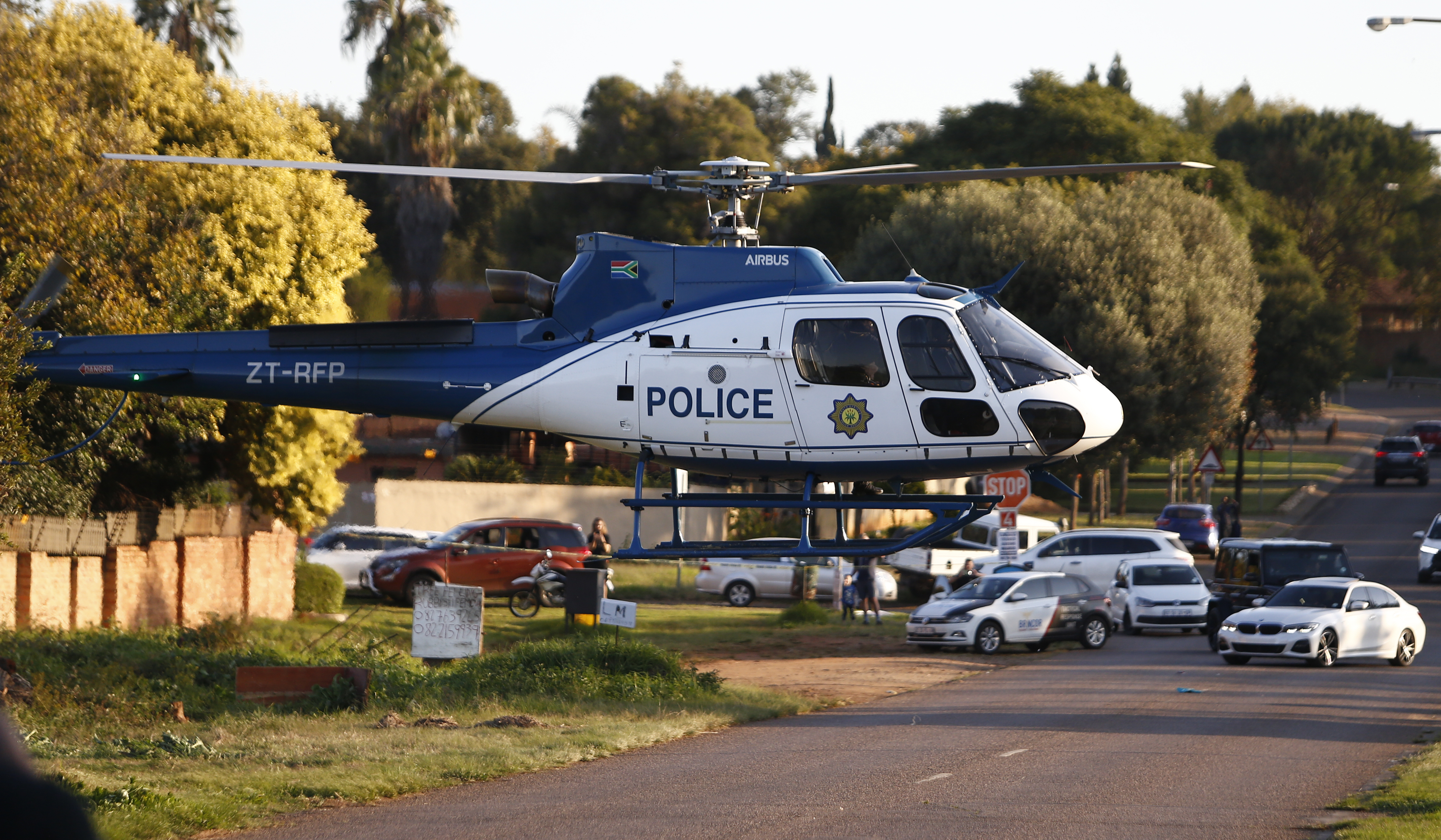Once a mighty asset for law enforcement, the SAPS Air Wing in Nelson Mandela Bay and the broader Eastern Cape has dwindled to the point where only one helicopter serves the entire province.
As of last month, it is believed that a second helicopter was declared airworthy after being grounded for more than a year. Daily Maverick’s questions on this have not yet been answered by MEC for Community Safety Xolile Nqatha, but sources confirm the helicopter appears to be back in the air.
/file/dailymaverick/wp-content/uploads/2025/04/20V8047.jpg)
While this appears to be good news, should more of the province’s grounded aircraft return to duty, it could take upwards of six months before anyone is qualified to pilot them.
This came to light after the MEC for Community Safety responded to questions in the public legislature regarding the state of the province’s police aircraft and airwing personnel.
Nqatha’s response has raised concerns among police insiders, who believe the numbers he provided paint a dire picture of how one of the police’s most effective crime-fighting units has been allowed to waste away.
“How can it be that the Eastern Cape once had five aircraft to conduct police operations, and for such a long time we were left with only one? No fixed-wing craft, three helicopters grounded and pilots left twiddling their thumbs. It truly is a shocking state of affairs,” a source said.
The questions from DA MP Yusuf Cassim date back to April, when he asked Nqatha how many aircraft and pilots should be serving the Eastern Cape, and what the current situation on the ground, or rather in the air, truly was.
On the books, the province should have five operational aircraft, including four helicopters and one fixed-wing plane.
/file/dailymaverick/wp-content/uploads/2022/08/DSC1192.jpg)
In his response, Nqatha stated that one Airbus H125 helicopter, or “Squirrel”, was operational at the Bulembu Air Wing in Bhisho.
He said a R44 helicopter was grounded at the Gqeberha Air Wing in July 2024 due to a worldwide recall on parts in the tail rotor blades. This fault had since been addressed, and the craft was due to return to active duty last month, which it reportedly did.
There have also been sightings of a police helicopter over Nelson Mandela Bay in the past few days.
However, a second R44, which has been grounded at Bulembu since 2019, was also scheduled to return to duty in August, but no reports were received on its condition.
It was grounded after a “mandatory periodic inspection” was initially delayed as there was no maintenance contract in place, and Covid-19 regulations made it difficult to procure parts. Subsequently, it was also affected by the tail rotor blade recall.
Even if Bulembu had two helicopters, the MEC’s report indicated that only one pilot is stationed at Bhisho, again limiting the Air Wing’s operations.
/file/dailymaverick/wp-content/uploads/2022/08/ED_394050.jpg)
Similarly, Gqeberha’s second helicopter, a Squirrel that has been grounded since 2020 following a “hard landing and serious structural damage”, is due to be repaired by the end of November. But the base still has only one qualified pilot.
The MEC indicated that the Eastern Cape should have a total of eight qualified pilots, four in Gqeberha and four in Bhisho. Each base has only one, while there is a process under way to fill four of the vacant positions.
“Should a pilot be appointed now, it will still take a minimum of six months for a new pilot to undergo basic training and dozens of hours in the air before he is confident enough to conduct police operations,” the insider said.
“Even if someone is appointed at the end of September, they will likely only be airworthy around May next year.”
/file/dailymaverick/wp-content/uploads/2024/09/WhatsApp-Image-2024-09-01-at-12.24.00.jpeg)
In the meantime, pilots in the Eastern Cape have resorted to private work in their spare time to accrue flight hours and maintain their training, because they spend so little time in the air with police aircraft.
A source said helicopter pilots should spend a minimum of five hours a month in the cockpit, which is difficult to do if their aircraft are not operational.
The province has two qualified fixed-wing pilots, but no planes.
With regard to Cassim’s questions on the availability of drones to conduct police operations, Nqatha said 77 drones were allocated to the Eastern Cape. The province should have 84 trained drone pilots, but there are only six.
Nelson Mandela Bay has three drones and two pilots.
“While drones have proven effective in rural areas and smaller communities, their capabilities in Gqeberha and surrounds are greatly hampered due to restrictions around key points and airports, some of which have a 10km radius restricting the use of drones,” the source said.
“Sure, they have their uses and are highly effective, but they struggle in adverse weather and they cannot carry personnel. They will never replace manned aircraft.”
He said helicopters had also proven to be highly effective in crime prevention, search and rescue and specialised operations, and could easily lighten the load of ground vehicles. DM




 A police helicopter flies over a crime scene. (Photo: Felix Dlangamandla)
A police helicopter flies over a crime scene. (Photo: Felix Dlangamandla)